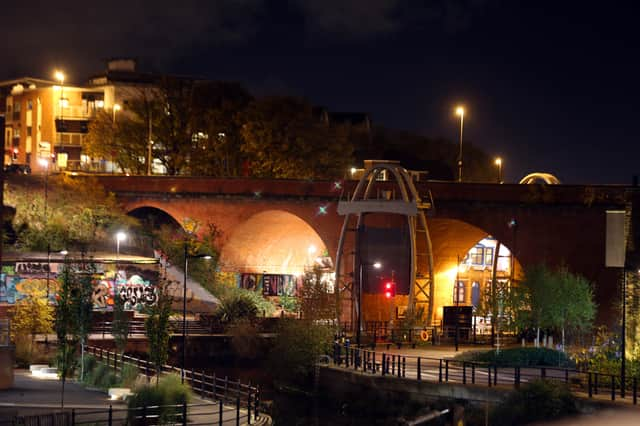Calls for Newcastle street-lights to be turned off in the early hours to save money and protect wildlife


The Newcastle Green Party has called for a trial of part-time lighting that could see lamps switched off between midnight and 5am.
Campaigners say that they would want main roads and busy areas like the city centre to remain lit through the night to ensure people feel safe, though possibly with lights dimmed, but that leaving quiet residential streets dark could have benefits for animals as well as reducing Newcastle City Council’s energy bills and carbon footprint.
Advertisement
Hide AdAdvertisement
Hide AdTay Pitman, a Green campaigner in the West End, said: “People worry about their safety at night and street lighting can be reassuring so we’re not advocating that lighting should be turned off along main roads or areas with a history of crime or anti-social behaviour.
“Perhaps trials could be carried out in some residential areas to find out how residents feel about part-time lighting?”
Similar schemes have been introduced in areas including Leeds and Leicester.
Recently-published research from Newcastle University has shown that light pollution from LED street lamps, which Newcastle has now almost completely converted to, is more harmful to insects than traditional street lighting, with caterpillar populations around LEDs reducing by more than 50%.
Advertisement
Hide AdAdvertisement
Hide AdMs Pitman added: “LED lighting is much more efficient than the older style lighting, but until recently, it wasn’t known that LEDs would be harmful to insects.
“Now that there is evidence to show the problems the LEDs are causing, the right approach could be to turn off lights in residential areas, especially those on the outskirts of the city.
“Other potential solutions could be to change the colour of the LED lighting so that it is wildlife-friendly or to use motion-sensors which turn the lights back on when someone is travelling along the road or walking along the pavement”.
Northumbria Police and Crime Commissioner Kim McGuinness said that the need to keep some areas lit for safety reasons “has to be balanced alongside our wider climate change concerns”.
Advertisement
Hide AdAdvertisement
Hide AdThe Labour PCC added: “These issues will have to be considered on a case by case basis. I want everyone to feel safe in their neighbourhood, and would hope local residents are consulted on any proposals.“
A new police website was launched this week enabling women and girls to anonymously report streets and areas in Newcastle that they feel are unsafe, while details are awaited of what cash the North East will get from a Government Safer Streets fund that was boosted in response to the murder of Sarah Everard.
While the cost of lighting the city’s streets has increased to £8.7m a year, city council bosses say that this is down to the rising cost of energy and that using LED lighting now saves around £1.5m compared to older lights.
A spokesperson added: “In addition to energy and financial savings we are also seeing benefits for the environment through reductions in carbon emissions. We estimate that around 6,000 tonnes of carbon emissions will have been saved, which is the equivalent to 4,190 fewer cars on the road, each year.
Advertisement
Hide AdAdvertisement
Hide Ad“Lighting levels are designed to meet British and European standards and ensure that all streets are adequately lit at night in order to provide clear visibility for road users and help people to feel safe, which we know from public feedback is a high priority for residents.”